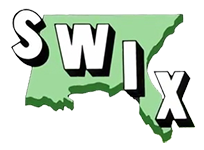Florida’s Pollution Prevention Program

Source: Florida DEP
Another program closely tied in with the State’s waste reduction and recycling efforts is called the Florida Pollution Prevention (P2) Program. Pollution prevention is a process improvement that eliminates, conserves or reuses materials which are the source of pollution. It achieves positive financial, environmental and worker health results.
Pollution prevention increases efficiency of business operations and results in lower raw material and labor costs. It eliminates long-term cradle-to-grave liabilities, hazardous waste management fees, and expenses associated with pollution control. Pollution prevention can also decrease worker exposure to toxins and clean-up costs resulting from improper disposal of hazardous substances.
Legislative Background
The 1988 Legislature established an assistance program designed to aid in reducing the amount and toxicity of hazardous waste generated in the State. In 1991, the Florida Pollution Prevention Act expanded the original legislation to encourage source reduction (preventing and reducing pollution at its source), waste reduction, resource conservation, and energy efficiency.
The Florida Pollution Prevention Act of 1991 also expanded the Department’s technical assistance activities, directed all state and local agencies to pursue prevention strategies, allowed financial and proprietary data collected during on-site technical assistance visits to be kept confidential, and created the Florida Pollution Prevention Council. The Council met for two years and its final report contained recommendations for a voluntary, statewide 50% reduction goal, small business loan programs, voluntary multimedia inspections, pollution prevention projects in enforcement, and increased technical assistance.
The Pollution Prevention (P2) Program offers non-regulatory technical guidance and education to Florida citizens, businesses, and industries. Since its inception, the P2 Program has assisted almost 400 Florida businesses in eliminating or reducing the generation of hazardous waste and toxic releases to Florida’s environment. Most efforts focus on small businesses because they have fewer resources to research and implement pollution prevention options.
The P2 Program’s many outreach efforts include on-site pollution prevention assessments, local government training, pollution prevention tip sheets, and a newsletter. A Statewide Pollution Prevention Conference is held annually. Representatives also participate in government workshops and trade association forums.
Florida’s P2 Program employs four full-time and five part-time engineers with extensive industrial experience. They provide pollution prevention technical assistance to Florida businesses and citizens around the state.
The P2 Resource Center contains tip sheets, industry articles, and case studies which illustrate economic and environmental benefits of pollution prevention. Documents can be obtained by telephone (850-488-0300) or through the P2 Program’s web site: http://www.dep.state.fl.us/dwm/programs/p2
Pollution Prevention and Ecosystem Management
As instructed by the Department’s 1996 Ecosystem Management Implementation Strategy, the Pollution Prevention Program continues to encourage the integration of pollution prevention into all DEP programs. This year, the P2 Program staff will conduct another round of training sessions in all District Offices which will include introductory information and P2 Projects in Enforcement. Future meetings will focus on incorporating pollution prevention opportunities into rules.
Additional Funding and Grants
The measurements of pollution prevention success gathered for the USEPA 1996 Pollution Prevention Incentives for States (PPIS) grant will be entered into a database which is under development. These findings will assist the P2 Program to quantitatively evaluate the success of services offered to Florida businesses. An initiative to identify pollution prevention incentives for industry through the environmental regulatory structure is also planned under this grant.
The 1997 PPIS grant encourages and expands pollution prevention partnerships with the Florida Manufacturing Technology Centers, the John F. Kennedy Space Center, and NAS Whiting Field, among others.
The 1998 PPIS grant expands partnership networks with environmental and business assistance providers, including the Florida Small Business Development Centers and the FDEP Small Business Assistance Program. A supplemental project allows the P2 Program to assist the Florida Pollution Prevention Roundtable (FLPPR), a group composed of local government representatives, with travel, funding, and staff time. FLPPR has adopted by-laws and produced their first yearly workplan.
The workplan provides more specific information on how the group will meet its goals, which are: to coordinate pollution prevention efforts in the state, improve the transfer of information, and maximize local efforts.
Posted in: Company News
Leave a Comment (0) ↓